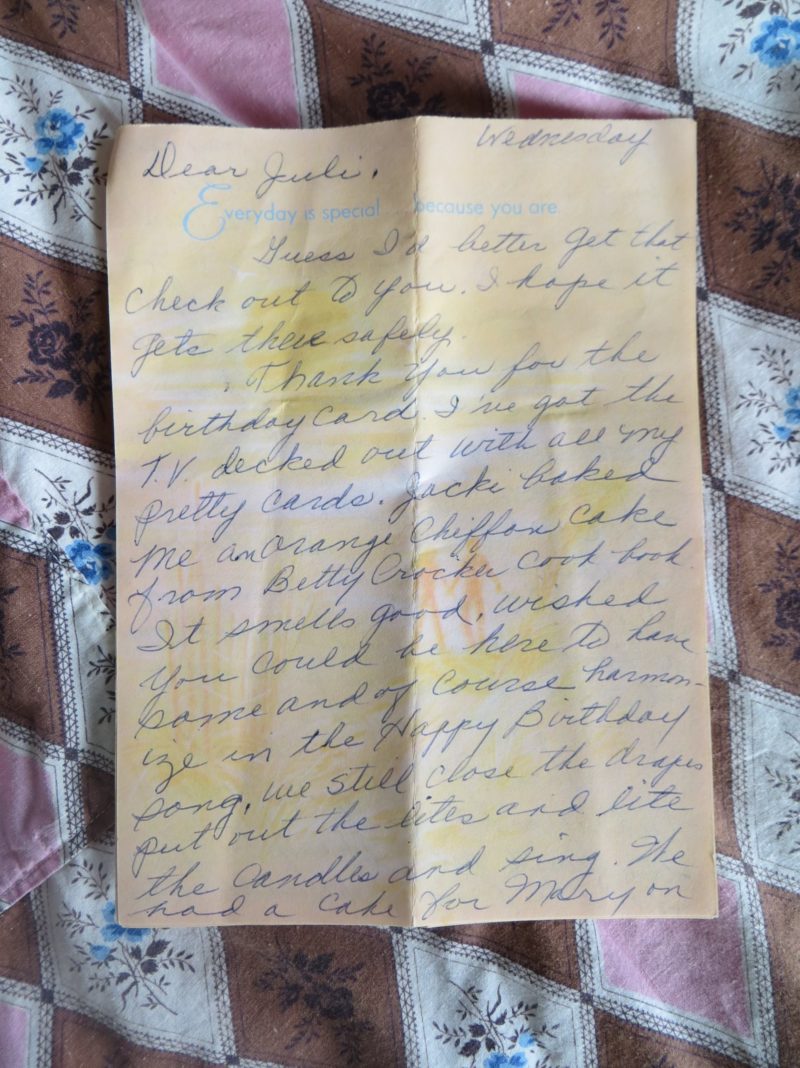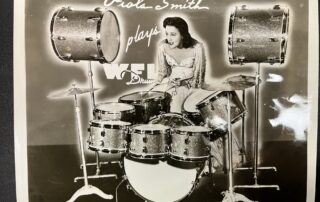When was the last time you wrote a letter? Patti See’s mother made her write letters to her older sisters every week. It’s that training that made her the writer she is today.
When I’m asked to do a “craft talk” in which I share with students or writers-in-training how and why I write, I sometimes say something smart-aleck-y: “I’m a small town gal with a poet’s eye for details and a barfly’s affinity for telling a good story.”
That may be true, but so is what I recently told a small crowd at a Chippewa Valley Writers Guild event: I am a writer because of my mother, who made me sit at the kitchen table and write letters with her at least once a week.
As soon as I knew the alphabet I wrote to my older sisters, who left home before I started kindergarten. This early training helped me see the story in my life—even at 6 years old. A lesson every writer needs is that this place is worthy of recording.
For the last four years of Mom’s life she didn’t recognize any of her eight children or sixteen grandchildren. Alzheimer’s stole her memory and eventually her voice. The week before Mom died, my older sister, Julie, came to home to say goodbye and brought along a small bag of letters Mom and I wrote to her beginning in 1972, when she graduated high school and moved away.
Sometimes the universe gives us just what we need at exactly the right time. After Julie left, I spent hours next to Mom’s bed reading these relics. The funniest parts I read out loud to her, though we could only communicate with touch: I massaged Mom’s arms and legs and she sometimes let out a slight groan.
What a gift to see Mom’s handwriting again—loopy but perfect cursive she learned from nuns at St. Killian’s before she left school in eighth grade to help on the family farm. She wrote like she spoke, and though she lay before me unable to move or even open her eyes anymore, in these letters I could hear her voice, an unexpected treasure.
In one letter she wrote, “Jackie baked me an orange chiffon cake from Better Crocker cookbook. It smells good. Wished you could be here to harmonize in the Happy Birthday Song. We still close the drapes, put out the lights, lite the candles and sing.”
Active voice. Concrete details. Her letters are a lesson in writing.
Mom also wrote about the mundane: signing me up for swimming lessons even though I already knew how to swim or driving with Dad to my brother’s “away” football games so she could be there if he got hurt or stressing about whether Dad’s job would be moved to another city. Her letters were a place to share news, of course, tell stories about the home life, and sometimes vent about her other children. Mom loved to write, and she loved her kids. Both are evident from these letters written decades ago.
The day Mom died, I opened a letter I’d sent to Julie when I was seven years old.
“Guess what?” I said in my first line of big, blocky printing. “Ann Landers got divorced and Cher got married.” I imagine Mom read the newspaper before we gathered at the kitchen table with our stationary and pens, and she shared with me these celebrity tidbits—pretty risqué for 1975.
All these years later I can still hear my mother: “Write that down,” she surely said to me. “Julie will get a kick out of this news.”











